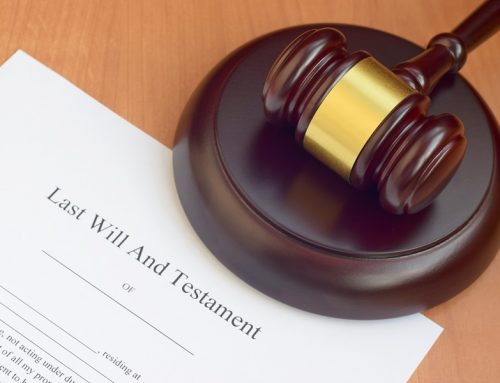Millions of people in the UK currently don’t have a Will – and we get it.
We understand that there are numerous reasons why so many put writing a will on hold: too young, feeling of not needing one just yet, planning to get one as soon as x,y, or z has happened, people know what you want to happen when you die so it’ll be fine, and more.
However, a Will is for everyone, no matter what your situation.
A vital document that outlines what you want to happen to your personal belongings when you pass away – rather than a stranger making this decision for you.
However, Will writing is complex and can be fraught with mistakes when you opt to not work with a professional.
To help, we’ve pulled together some of the most common mistakes we’ve encountered when clients come to us to help them with their Will.
Common Mistakes When Writing a Will
Failing to have your Will witnessed correctly
The importance of witnesses in legalising a Will cannot be underestimated.
For your last Will and testament to stand up in court, your Will must be witnessed and signed by two independent people.
Your chosen witnesses will also be asked to sign the Will in your presence, which helps to ensure the document is valid.
(It’s important to note that all witnesses must be over 18 years old and not be named as beneficiaries or related to any beneficiaries.)
Creating a DIY Will
Of course, in the age of digital, it is possible to head online and find a Will template to begin making a Will on your own.
However, we often find a failure to include what is needed in the document; there can be spelling mistakes, misinterpretations, generalisations, and more.
This can cause considerable problems after your passing and conflicts between family and friends named in the Will.
Working with an expert team and a professional will writing service helps eliminate any misinterpretations, including things that you may not have considered, and ultimately ensures that your assets correctly reflect your wishes.
Forgetting key assets
People will remember to include key assets such as property and monetary accounts, however, it’s important that we also remember to include foreign or business assets as well as digital assets.
For example, do you have any online accounts, bonds, shares, etc? What would you like to happen to your social media accounts after you pass? Have you passed on your usernames and passwords so people can access them?
Not updating your Will
One of our biggest Will writing tips is to never think of a Will as a static document. This is because situations and circumstances do change. You may have additional children, separate and divorce, move house, etc.
These significant changes in circumstances lead to your current Will becoming outdated and obsolete.
Ideally, we recommend reviewing your Will every 5 years to ensure it still correctly fulfils your wishes.
Not writing a Will at all
You should never assume that what you want is what is actually going to happen if you don’t write it down.
Not having a Will in place can be incredibly stressful to those surviving you as they try to navigate what they think you would want amid other people’s opinions.
You must also note that intestacy rules will come into effect if you don’t have a Will in place, which can dictate what happens to your assets as set out by the Law.
Make sure to check out our post on “Common Types of Wills” to see which Will is more suited to your circumstances and how to write a Will that meets your needs.
Only planning for death
It’s important when writing a Will to consider a living Will too, i.e., if your health declines or you’re diagnosed with dementia where you can’t articulate your own health wishes anymore, do you have a plan in place for what you do want and for someone to ensure your wishes are still carried out?
Forgetting your pets
If you have pets, these should also be included in your Will. For example, do you want your pets to go to a friend or family member when you pass? Have you arranged for them to be adopted by an adoption agency in exchange for a donation of your estate?
Not appointing guardians or executors
If you have young children, it’s important to think about and include in your Will who you would like to look after them if you die.
Naming a guardian is also essential if one parent dies and the other survives, to explicitly set out your requests to avoid battles in family court.
(It is also a good point to remember to appoint an executor, i.e., the person who you want to be responsible for conveying your wishes as outlined in the Will.)
What to think about when writing a will
- Don’t put your burial wishes in your Will; often, Wills aren’t read until after the burial, so some key features could be missed.
- Discuss your requests with your beneficiaries; not everyone likes surprises.
- Explicitly mention stepchildren rather than include everyone in the generic term “my children,” as this can be challenged in court.
- Account for your debts.
- Avoid ambiguous language; be clear and specific.
- Keep your Will in a safe place.
- Seek professional advice.
There is a lot to think about when writing a Will; ultimately, you must decide who you would like to benefit from your assets when you die.
At Syrus Wills, we help ensure that all your legal obligations are met, thinking of all areas and providing you with a comprehensive Will that fully meets your needs.
To find out more call us today at 01942 795795.



